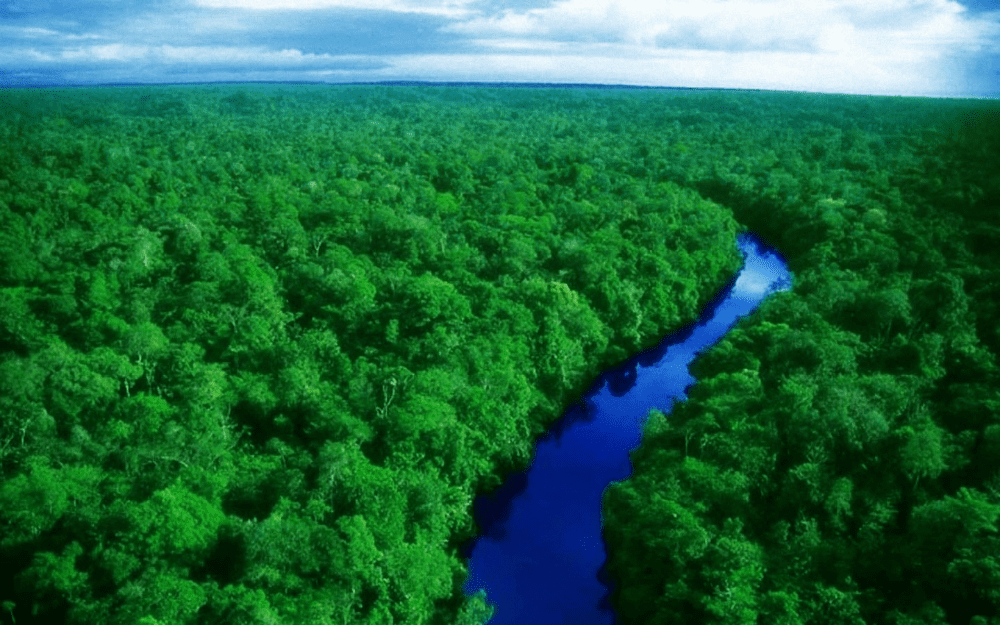The preservation of Brazilian biodiversity is a topic of extreme importance in the international context, since Brazil is recognized as a country with one of the greatest natural resources in the world. The conservation of these areas is essential to ensure the maintenance of life on the planet, as they have great influence on climate regulation, on the balance of the hydrological cycle and on the protection of several species of animals and plants that make up the food chain and the base of the global biodiversity.
Environmental conservation in Brazil is such a relevant topic that it attracts the attention of world organizations such as the United Nations (UN), which already deals with the issue of preserving Brazilian biomes as an international commitment, signed between UN member countries and supported through international preservation financing – mainly in the Amazon Forest region – aimed at facing the challenges of climate change and promoting sustainable development, in which economic activities are in harmony with the preservation of the environment. The conservation of these areas is also essential to guarantee access to natural resources, such as water, wood and ecological tourism, and to promote the sustainability of these resources for future generations.
In addition to international recognition for its rich biodiversity, Brazil has a series of environmental protection measures to ensure the preservation of its natural areas. Since the 1980s, the country has implemented several laws and public policies aimed at protecting nature, such as:
- Forest Code;
- Atlantic Forest Law;
- National System of Nature Conservation Units;
- Amazon Protected Areas Program (ARPA);
- National Biodiversity Conservation Program (PROBIO).
ICMBio and the Environmental Preservation Mechanisms in Brazil
The Chico Mendes Institute for Biodiversity Conservation (ICMBio) is a Brazilian federal autarchy whose main responsibility is the implementation of policies and programs for the conservation of the country's biodiversity and natural resources. Through the management of federal conservation units, such as national parks and biological reserves, ICMBio seeks to protect and preserve Brazil's natural heritage, ensuring its sustainability and perpetuity for future generations.
In addition to the management of conservation units, ICMBio conducts research and monitors the Brazilian fauna and flora, producing important information for decision-making and the implementation of public policies aimed at environmental conservation. These studies are fundamental for the development of ecosystem management and recovery strategies, as well as for the prevention of species at risk of extinction. To achieve its objectives, the Institute works closely with other government agencies, non-governmental organizations and local communities, aiming to encourage environmental conservation and sustainable development throughout the national territory. This partnership is essential for the success of the actions developed by the Institute, since the conservation of biodiversity is a challenge that involves the participation and engagement of society as a whole.
With this comprehensive and integrated action, ICMBio has become a reference in biodiversity conservation in Brazil and in the world, contributing significantly to the preservation of the Brazilian natural heritage and to the sustainable development of the country. The conservation actions carried out by the Chico Mendes Institute are extremely important to guarantee the preservation of these areas and to promote society's participation in the protection of biodiversity. ICMBio's activities are not limited to the management of protected areas, but also include:
- Development of programs and projects to promote sustainability;
- Promotion of scientific research;
- Forming partnerships with governmental and non-governmental organizations;
- And the engagement of the local population in environmental conservation actions.
ICMBio is also the body responsible for managing federal conservation units in the country and monitors and supervises protected areas. The Law of the National System of Conservation Units (SNUC) is the main legislation that regulates the creation and management of conservation areas in Brazil. It establishes the categories of conservation units and the criteria for their creation, management and use. The categories of conservation units range from areas of strict protection, where human presence is restricted, to areas of sustainable use, where human presence and the carrying out of economic activities compatible with biodiversity conservation are permitted. The creation of conservation areas is a topic of extreme importance in Brazil, since the country is one of the richest in biodiversity in the world and is home to several ecosystems and unique species. The protection of these areas is essential to ensure the survival of these species and to maintain ecosystem services, which are essential for human life and the economy.
It is important to emphasize that the creation of conservation areas must take into account the participation of civil society, local communities and traditional peoples – all must be consulted and involved in decisions related to the creation and management of protected areas. In addition, it is necessary to ensure that economic activities carried out in conservation areas are compatible with biodiversity conservation and that they contribute to local socioeconomic development in a sustainable manner.
The laws and regulations that govern the creation and management of conservation areas in Brazil are fundamental to guarantee the protection of biodiversity and ecosystem services, as well as to promote sustainable development and the participation of society in decisions related to environmental conservation. ICMBio plays an essential role in this process, acting as the main body responsible for the management of federal conservation units in the country.
National System of Nature Conservation Units - SNUC
Environmental protection systems and laws in Brazil are extremely important for the country's international image, as they demonstrate the Brazilian government's commitment to preserving nature and promoting sustainable development.
Brazil is a country recognized worldwide for its rich biodiversity and the preservation of unique ecosystems, such as the Amazon Forest, the Pantanal and the Atlantic Forest. However, human action and economic development can threaten these ecosystems, causing negative impacts on biodiversity and the quality of life of the population. The existence of protected areas, such as national parks and biological reserves, and the adoption of measures to control deforestation and pollution demonstrate the country's commitment to environmental sustainability.
The National System of Nature Conservation Units (SNUC) is a set of legal measures created in 2000 by the Brazilian government with the aim of regulating and protecting the country's natural conservation areas. SNUC was created with the aim of ensuring the conservation and preservation of Brazilian biodiversity, as well as the natural, cultural and historical ecosystems that make up the national heritage. The system establishes guidelines and norms for the creation, management and monitoring of protected areas in the Brazilian territory.
The conservation units provided for by the SNUC can be divided into two categories:
- Integral Protection Units, which aim to preserve nature and are characterized by the indirect use of natural resources. This group comprises the categories Ecological Station, Biological Reserve, National Park, Wildlife Refuge and Natural Monument.
- Sustainable Use Units, which seek to reconcile nature conservation with the sustainable use of part of natural resources. This group comprises the categories of Environmental Protection Area, Area of Relevant Ecological Interest, National Forest, Extractive Reserve, Fauna Reserve, Sustainable Development Reserve and Private Natural Heritage Reserve.
SNUC's objectives are diverse, including conservation of biodiversity and genetic resources, protection of endangered species, promotion of environmental education and understanding, sustainable development from natural resources, protection of natural landscapes, protection of relevant characteristics of a geological, morphological, geomorphological, speleological, archaeological, paleontological and cultural nature, the protection or restoration of degraded ecosystems, the promotion of scientific research activities, studies and environmental monitoring, the economic and social valuation of biological diversity, the promotion of ecological tourism and the protection of natural resources necessary for the subsistence of traditional populations.
The existence of SNUC is fundamental for the conservation of nature and for the promotion of sustainable development in Brazil. In addition, it contributes to the country's international position as a defender of biodiversity and natural resources, favoring economic activities such as ecological tourism and the production of sustainable products.
Environmental Conservation in Brazil Under International Expectations
Brazil's image in the environmental conservation scenario is the subject of controversial debates in the International Forums on the Environment and Climate, as the country is home to a rich biodiversity and has some of the most extensive and diverse protected areas in the world - which makes it an important player global commitment to nature conservation. In addition, the country has advanced environmental legislation and is a signatory to important international agreements, such as the Convention on Biological Diversity and the Paris Agreement – both agreed between member countries of the United Nations (UN).
On the other hand, Brazil faces important challenges in terms of deforestation and environmental degradation in recent years, which has generated criticism from international organizations, foreign governments and public opinion. The relaxation of environmental laws and the lack of effective inspection and control measures are some of the main causes of this challenge. Despite the challenges, it is possible to state that the image of Brazil in the scenario of environmental conservation is made up of more positive than negative aspects. It is necessary for the Brazilian government and society to work together to implement effective environmental preservation measures and to ensure that the country fulfills its international commitments regarding nature conservation.




